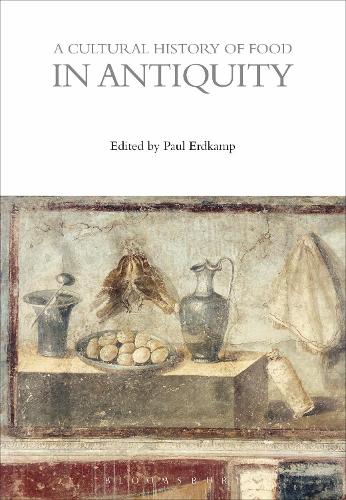
A Cultural History of Food in Antiquity
(Paperback)
Available Formats
Publishing Details
A Cultural History of Food in Antiquity
By (Author) Paul Erdkamp
Bloomsbury Publishing PLC
Bloomsbury Academic
19th November 2015
United Kingdom
Classifications
Tertiary Education
Non Fiction
Social and cultural history
Ancient history
394.12
Physical Properties
Paperback
264
Width 166mm, Height 242mm, Spine 18mm
460g
Description
From Archaic Greece until the Late Roman Empire (c. 800 BCE to c. 500 CE), food was more than a physical necessity; it was a critical factor in politics, economics and culture. On the one hand, the Mediterranean landscape and climate encouraged particular crops notably cereals, vines and olives but, with the risks of crop failure ever-present, control of food resources was vital to economic and political power. On the other hand, diet and dining reflected complex social hierarchies and relationships. What was eaten, with whom and when was a fundamental part of the expression of ones role and place in society. In addition, symbolism and ritual suffused foodstuffs, their preparation and consumption. A Cultural History of Food in Antiquity presents an overview of the period with essays on food production, food systems, food security, safety and crises, food and politics, eating out, professional cooking, kitchens and service work, family and domesticity, body and soul, representations of food, and developments in food production and consumption globally.
Reviews
[T]he six volumes of A Cultural History of Food provide an enlightening and fascinating insight into the history of food and its development throughout history in an authoritative and accessible style. -- Louise Ellis-Barrett * Social Sciences *
Author Bio
Paul Erdkamp is Professor of Ancient History at the Flemish Free University of Brussels, Belgium. He is author of Hunger and the Sword; Warfare and Food Supply in Roman Republican Wars; and The Grain Market in the Roman Empire; and editor of The Cambridge Companion to Ancient Rome (2013).
